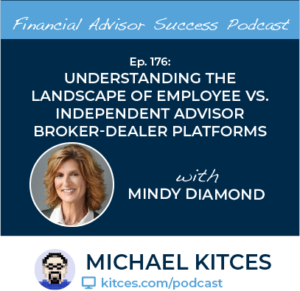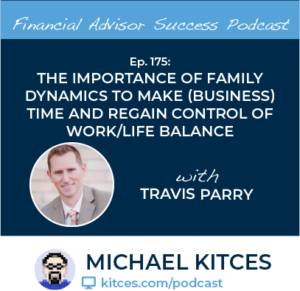Over the past several weeks, the major stock indices have experienced both the fastest crash and the most robust market bounce ever seen. In the process, financial advisors have watched their clients transition from abject panic to outright relief and have worked hard to keep their clients focused on their long-term goals… while sometimes questioning how they themselves will persevere through these difficult times because as previous crises have shown, many businesses fail to survive through severe economic downturns. Which, in turn, raises the question: what should advisory firm owners do now to ensure they survive the next crisis (or the next stage of this crisis, if the S&P 500 falls back near 2,000!)?
In this guest post, Stephanie Bogan – CEO of Educe, Inc., and Founder of Limitless Adviser Coaching – explains how financial advisors can address this difficult question and start to understand the steps they need to take to help them prepare for the potential bumps and potholes in the road ahead. More specifically, planning ahead can help avoid getting backed into a fight-or-flight reactionary corner in response to crisis situations; instead, advisors can take a proactive approach in preparing their firms, embracing an enthusiastic mindset, identifying where they provide the most value to their clients, developing efficient systems, and continuously driving growth.
Accordingly, the first step in preparing for a crisis involves contingency planning, a calm evaluation of all business expenses, and modeling various scenarios to identify which expenses can be reduced or eliminated without compromising client care.
Beyond that first step, the capability that will function as the main driver of a successful business is maintaining a positive mindset by categorizing all tasks that need to be done as either ‘above-the-line’ activities (those that empower and create energy and thus create a success-state frame of mind) or ‘below-the-line’ activities (those that stagnate energy and create a negative state of mind with feelings such as fear, uncertainty, doubt, and anxiety) and then to design a plan that will allow the advisor to delegate all below-the-line activities to someone else while keeping their time and energy focused on the above-the-line activities that ultimately are crucial to keep the business thriving and growing through a crisis.
An objective and fair assessment of an advisor’s own value is also a critical step to help home in on a specific client niche for which they are able to provide their best work. By narrowing the ideal client’s profile, advisors can focus on their clients’ specific and unique needs, elevating the value they provide. Efficiency is another core competency that will help advisors not just survive, but thrive, in the face of crisis as efficient systems will permit advisors to continue delivering their specialized services without interruption, even in the face of crises. Finally, a focus on growth – by investing in marketing strategies such as SEO, digital marketing, and podcasting – can help advisors maintain a successful practice even in times of crisis. And with a narrowly defined client niche, providing targeted, essential services addressing the unique and specific needs of the clients in and of itself can also foster growth!
Ultimately, the key point is that by asking the right, albeit difficult, questions about what it will take to maintain a successful mindset in the face of a future business crisis like watching the S&P 500 fall to 2,000, the specific value that can be most effectively offered to clients (and sustained through such a crisis), how operating systems can be systematized most efficiently (especially when facing the pressures of a crisis), and what measures can be taken to foster continued growth of the firm (despite an ongoing crisis), advisors can ensure their own continued success when the next crisis inevitably hits.

 Welcome back to the 176th episode of Financial Advisor Success Podcast!
Welcome back to the 176th episode of Financial Advisor Success Podcast! Welcome back to the 175th episode of Financial Advisor Success Podcast!
Welcome back to the 175th episode of Financial Advisor Success Podcast!
